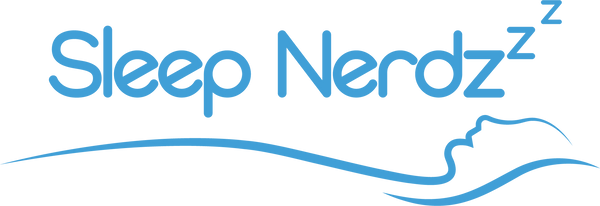When it comes to understanding your health, your heart often speaks the loudest. One of the most telling metrics of overall well-being is your sleeping heart rate. While most people know the importance of monitoring blood pressure or blood sugar, heart rate, especially during sleep, can offer vital clues about your cardiovascular and nervous systems, fitness levels, and even mental health.
What Is a Sleeping Heart Rate?
Your sleeping heart rate is the number of times your heart beats per minute (BPM) while you're asleep. Unlike your resting heart rate (RHR), which is measured while you're awake but inactive, your sleeping heart rate can be even lower because your body is in a state of deep rest and recovery.
Heart rate naturally decreases during sleep due to reduced demand on the body and changes in autonomic nervous system activity. Tracking your sleeping heart rate provides insights into your sleep quality, stress levels, and cardiovascular health.
Normal Sleeping Heart Rate: What to Expect
For most healthy adults, the average sleeping heart rate ranges between 40 and 60 beats per minute. However, what's "normal" can vary depending on several factors, including age, fitness level, and overall health.
Age-Based Averages:
- Children (6-15 years): 70-100 BPM
- Adults (18+ years): 40-60 BPM during deep sleep
- Seniors (65+ years): Slightly higher but still ideally under 70 BPM
Fitness Level Influence:
Athletes or individuals with high cardiovascular fitness often have lower sleeping heart rates, sometimes even dipping into the mid-30s. This is typically a good sign, as a low heart rate indicates a strong, efficient heart.
When Is a Sleeping Heart Rate Considered High?
A consistently high sleeping heart rate (above 70 BPM) may signal that your body is under stress, dealing with a health issue, or not getting quality rest. In some cases, heart rates in the 80s or 90s during sleep could be a red flag.
Causes of High Sleeping Heart Rate:
- Stress and Anxiety: Elevated cortisol levels can keep your heart rate high even at night.
- Fever or Illness: Your heart works harder to combat infections.
- Alcohol or Caffeine Consumption: Both can disrupt sleep cycles and increase heart rate.
- Sleep Disorders: Conditions like sleep apnea often cause sudden spikes in heart rate.
- Medications: Some drugs, including antidepressants and decongestants, can elevate heart rate.
If your sleeping heart rate is consistently above normal without an obvious cause, it's worth speaking to a healthcare provider.
When Is a Sleeping Heart Rate Too Low?
On the flip side, a sleeping heart rate that is too low (under 40 BPM) can be concerning unless you're a trained athlete. Bradycardia, or slow heart rate, can indicate a range of issues when accompanied by symptoms like fatigue, dizziness, or fainting.
Possible Causes of Low Sleeping Heart Rate:
- Athletic Conditioning: Common in highly fit individuals.
- Hypothyroidism: An underactive thyroid can slow the heart.
- Electrolyte Imbalances: Potassium and calcium levels affect heart rhythm.
- Sleep Disorders: REM sleep behavior disorder and others can impact heart function.
- Heart Conditions: Heart block or sick sinus syndrome may be at play.
If you're noticing symptoms or extremely low heart rates regularly, it's time for a professional evaluation.
How Heart Rate Changes Through Sleep Stages
Sleep isn't a static state—it cycles through several phases, and your heart rate varies accordingly.
Non-REM (NREM) Sleep:
During the early stages of sleep (especially in deep sleep or slow-wave sleep), your body is in full restoration mode. Heart rate, blood pressure, and breathing all drop to their lowest levels.
REM Sleep:
In this stage, your brain is active and dreaming. Your heart rate becomes less predictable and may spike temporarily, depending on the intensity of your dream or stress.
Understanding these fluctuations can help differentiate normal sleep patterns from possible abnormalities.
Why Monitoring Your Sleeping Heart Rate Matters
Heart rate patterns during sleep can reveal more than just your sleep quality. They can provide early indicators for conditions like:
- Sleep apnea
- Cardiovascular disease
- Stress disorders
- Overtraining or poor recovery in athletes
- Hormonal imbalances
Moreover, consistently elevated heart rates at night are linked to increased risks of hypertension and cardiac events.
Best Practices to Improve Sleeping Heart Rate
If your sleep tracker shows a high or irregular heart rate, here are science-backed ways to bring it back to optimal levels:
1. Prioritize Sleep Hygiene
Create a routine that encourages restful sleep. Keep your bedroom dark, cool, and quiet. Avoid screens and bright lights before bed.
2. Limit Alcohol and Caffeine
Both substances interfere with sleep cycles and can increase nighttime heart rate.
3. Practice Stress Management
Incorporate mindfulness, meditation, or breathing exercises into your daily routine to reduce sympathetic nervous system overactivity.
4. Regular Physical Activity
Exercise improves cardiovascular efficiency, but avoid intense workouts late in the evening.
5. Maintain a Consistent Sleep Schedule
Going to bed and waking up at the same time helps regulate your circadian rhythm and autonomic functions.
6. Stay Hydrated and Eat Wisely
Avoid heavy meals before bed and ensure you're drinking enough water throughout the day.
How to Track Your Sleeping Heart Rate Accurately
To understand your sleeping heart rate trends, you need a reliable method of continuous monitoring. That's where Sleep Nerdz comes in. Our suite of advanced sleep tech products ensures you get accurate, real-time insights into your sleep metrics.
ZenRing Smart Ring
Sleek and comfortable, the ZenRing tracks your heart rate, blood oxygen levels, body temperature, and sleep stages with clinical-grade precision. It is perfect for those who want unobtrusive yet accurate nightly data.
Guardian Mattress Topper
Not a fan of wearables? The Guardian Mattress Topper monitors your heart rate, respiration, and movement from under your body, giving you a comprehensive sleep profile without lifting a finger.
Sleep Trackers
Our diverse line of sleep trackers includes bedside devices and under-pillow sensors, all designed to give you granular insights into your heart rate, REM cycles, and disruptions throughout the night.
When to See a Doctor
While technology can provide valuable insights, it's essential to know when professional help is needed. Contact a healthcare provider if you notice:
- A consistent heart rate above 80 BPM during sleep without clear cause
- Symptoms like chest pain, dizziness, or fatigue
- Drastic shifts in your normal sleeping heart rate
- Irregular heartbeat or skipped beats during sleep
Medical evaluations may include EKGs, sleep studies, and blood tests to rule out or manage underlying issues.
Key Takeaways
- The normal sleeping heart rate for adults generally ranges between 40 and 60 BPM.
- A high sleeping heart rate (above 70 BPM) may indicate stress, sleep disorders, or illness.
- A low sleeping heart rate (under 40 BPM) may be normal for athletes but could signal health problems in others.
- Monitoring your sleeping heart rate helps you understand your cardiovascular health, stress levels, and sleep quality.
- Lifestyle changes, stress reduction, and high-quality sleep tech can all support optimal heart rate during sleep.
Empower Your Sleep Journey with Sleep Nerdz
Your heart is trying to tell you something every night. Are you listening?
With advanced sleep technology from Sleep Nerdz, you can unlock the secrets of your sleeping heart rate and make data-driven decisions for better rest and better health. Whether it's the stylish and accurate ZenRing Smart Ring, the ultra-comfortable Guardian Mattress Topper, or one of our innovative sleep trackers, we have the right tools to help you sleep smarter.
Don't just sleep—sleep intelligently.
Shop our cutting-edge collection and transform your nights for good.

